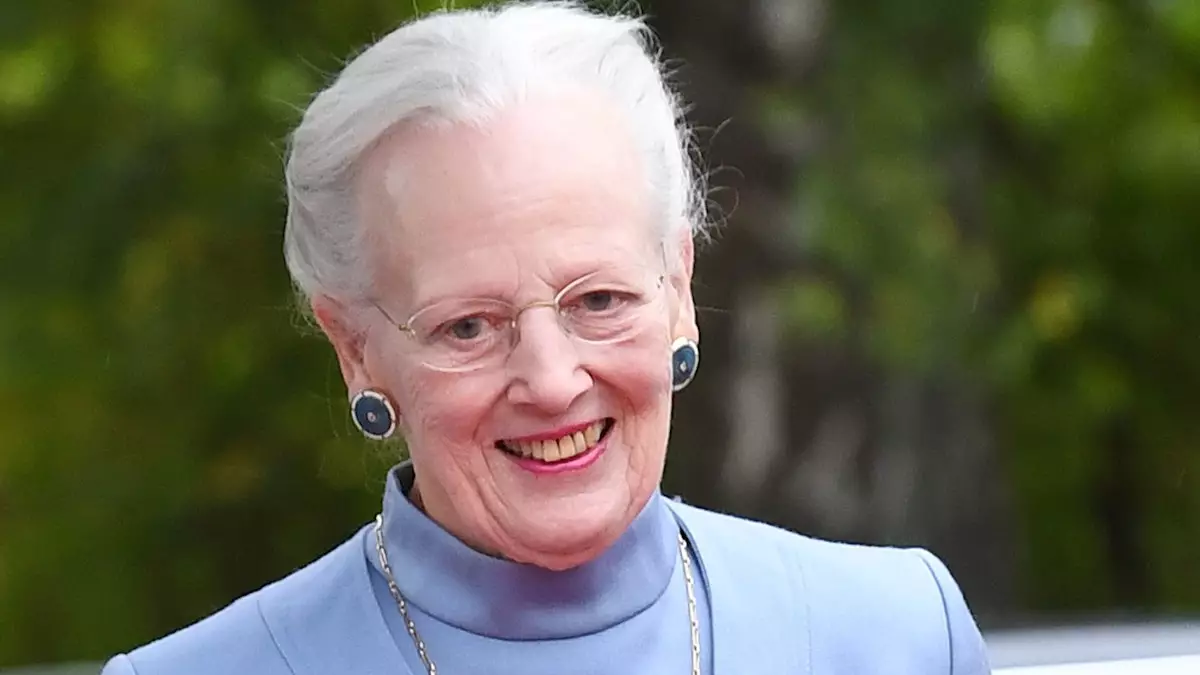In a recent turn of events, Queen Margrethe II of Denmark was compelled to cancel a public engagement scheduled for Thursday. The former monarch was expected to participate in the 125th anniversary celebrations of the Sankt Lukas Foundation—an institution dedicated to providing essential health and welfare services across Denmark. Yet, according to reports from Danish media, the Palace stated that Her Majesty had fallen ill, causing the anticipated event to be officially labeled as “Cancelled.” This abrupt cancellation raises questions about the impact of health on the responsibilities of those in royal positions, particularly given Margrethe’s age of 85.
While specific details about her illness remain undisclosed, the public is left to conjecture about her well-being. Last seen at a memorial service commemorating Denmark’s liberation, Margrethe’s commitment to her duties has been evident, yet her ability to fulfill these commitments is now under scrutiny. This scenario not only highlights the fragility of human health, particularly at an advanced age, but also invites reflection on the expectations placed upon public figures to maintain a robust presence amidst personal challenges.
A Royal Legacy and Family Support
Queen Margrethe’s recent public engagements, though marred by her health concerns, do underline the familial support surrounding her. Witnessed during the celebration of her 85th birthday at Fredensborg Palace, members of the royal family—including her son King Frederik and daughter-in-law Queen Mary—rallied together, demonstrating unity and the importance of family ties during trying times. The presence of her grandchildren and beloved sisters further emphasizes the royal family’s commitment to upholding the legacy and culture of the Danish monarchy, fostering a sense of continuity even amid uncertainty.
Additionally, as Margrethe embraces a more behind-the-scenes role, her abdication in January 2024 to pave the way for her son suggests a thoughtful transition in leadership. This act, while perhaps bittersweet, exhibits profound wisdom in recognizing when to pass the torch. The Danish public has long admired her steadfast nature, and such transitions are oftentimes deeply reflective of a monarch’s strength and adaptability.
Tradition Amidst Change
In the backdrop of Margrethe’s health issues, Queen Mary and King Frederik exemplify the ongoing vitality of the Danish royal family through their participation in various public events. Their recent engagement aboard the Royal Yacht Dannebrog and a dinner at Kronborg Castle highlight not just royal tradition but also a commitment to the ever-evolving role of the monarchy in contemporary society. Mary’s sartorial choices reflect modern elegance intertwined with traditional elements, showcasing how the royal family adapts to both ceremonial and familial responsibilities.
As the couple prepares for an upcoming late summer cruise, one cannot help but appreciate the deliberate effort to keep royal traditions alive. Yet, this also prompts an important inquiry into the balance between maintaining long-established customs and recognizing the contemporary challenges that accompany them, especially in light of Queen Margrethe’s current health situation.
Navigating the complexities of royal duty, familial obligations, and personal well-being presents an ongoing narrative that resonates deeply with many. The story of Queen Margrethe, enshrined in years of commendable service, serves as a poignant reminder of resilience, the enduring bonds of family, and the necessity of compassion in the face of life’s unpredictable nature.

